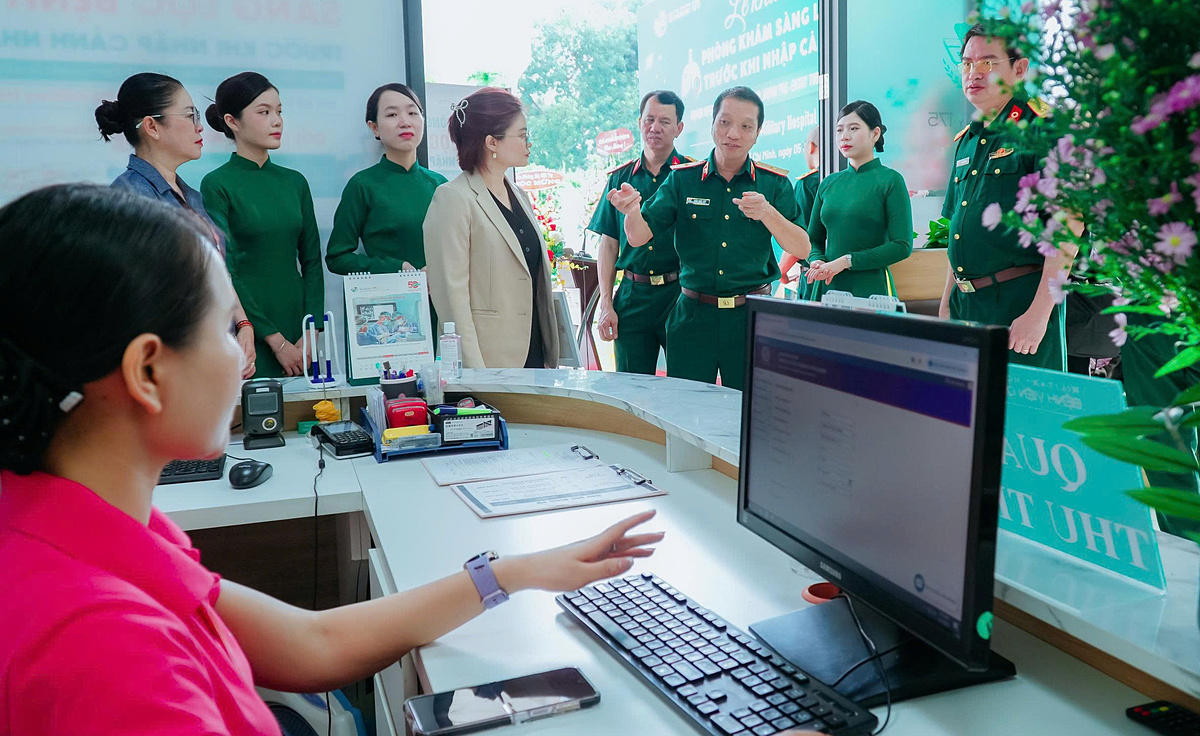The clinic opened on 5/8. Major General Tran Quoc Viet, Director of 175 Military Hospital, said this is the result of two years of collaboration with Japan to build and complete the tuberculosis screening clinic according to international standards. It serves students, workers, or long-term residents preparing to enter Japan. The clinic is designated by the Japanese government through the Certified Japan Program Tuberculosis Quality Assessment Center (CJPQA), an agency under the Japanese Ministry of Health, Labor, and Welfare.
Ho Chi Minh City now has 6 facilities conducting JPETS examinations. 5 are private healthcare facilities, and the clinic at 175 Military Hospital is the first public facility. After screening, those who qualify are issued a Tuberculosis-Free Certificate, a requirement for entry into Japan for citizens from "target countries" including Vietnam, the Philippines, Indonesia, Nepal, Myanmar, and China. These are countries with a large proportion of citizens diagnosed with tuberculosis during their stay in Japan.
Japan has strict tuberculosis control policies to protect public health. According to regulations, people with infectious pulmonary tuberculosis are not allowed to enter the country. Therefore, pre-departure tuberculosis screening is mandatory for Vietnamese citizens who want to study, work, or settle in Japan.
 |
Delegates visit the Pre-Departure Tuberculosis Screening Clinic at 175 Military Hospital on 5/8. Photo: The Lan |
Delegates visit the Pre-Departure Tuberculosis Screening Clinic at 175 Military Hospital on 5/8. Photo: The Lan
According to Senior Lieutenant Colonel, Doctor Nguyen Hai Cong, Head of the Department of Respiratory Medicine, the Japanese international certification helps 175 Military Hospital improve and enhance the overall quality of medical examination and treatment. It contributes to preventing the spread of tuberculosis and protecting public health.
Those who wish to travel abroad, after registering, will undergo a clinical examination and chest X-ray. Suspected cases of tuberculosis will undergo further testing for a definitive diagnosis. Qualified individuals will be issued certificates as required by the CJPQA and the International Organization for Migration (IOM). This certificate is required to apply for a Certificate of Eligibility for residence in Japan and a visa at the Japanese Embassy or Consulate (if not already eligible for residence).
In 2024, Vietnam detected more than 113,000 new tuberculosis cases, a 7% increase compared to the previous year. This places Vietnam among the countries with the highest tuberculosis burden globally. Vietnam currently ranks 12th out of 30 countries with the highest tuberculosis burden and 10th in the number of drug-resistant tuberculosis patients. Only about 60% of tuberculosis cases in the community are detected. Undiagnosed cases remain a potential source of infection, posing significant challenges to disease control efforts.
Tuberculosis is an infectious disease caused by bacteria, spread mainly through the air, making control particularly difficult. The disease is called a "silent killer" because it often develops insidiously over a long period and is detected in its late stages. From the onset of the disease to death, the patient can infect many others. Early detection and proactive contact tracing not only saves lives but also helps minimize the spread of infection in the community and positively impacts tuberculosis epidemiology. The disease is completely curable if patients strictly adhere to the treatment regimen.
Le Phuong












